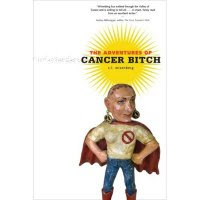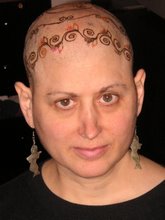
Friday afternoon I was walking to the main library downtown and thought about the time, years ago, I was in the library and this guy came up to the counter asked the librarian if she had any books by Studs Terkel, if she'd heard of Studs Terkel. It was Studs, in his characteristic red-checkered shirt. I don't think she had. I should have said, Yes, I've heard of you, I've read your work--but I didn't.
See, it's all about me. A great wonderful person
dies and I think of myself. I feel sorry for myself, I feel regret: I met Studs a few times, talked to him, but I wasn't friends with him. I knew people who were friends with him. At a party a few weeks ago I talked to T, who was telling me about visiting Studs, who was not doing well. He may have been bed-ridden. T told me that Studs told him that he'd wanted to stay alive to see the Cubs go the World Series, and now he wanted to hold on until the election. (His
absentee ballot arrived at his house the day he died.) I thought later that I wanted to ask T if I could go with him next time he went to see Studs. Would that even have been appropriate? I'm sure Studs wouldn't have remembered meeting me. My friend
S came to Chicago several years ago to read from her book of oral histories. She visited Studs. She visited
Carlos Cortez. She could do that because she was from out of town. Now both of these grand old men are dead.
I still haven't read the obit. I couldn't figure out my resistance to it, and then I thought: It's because I'm jealous. I wish I'd written it. I wish I'd known him the way Rick Kogan, who wrote the obit, knew him. What is wrong with me? I just heard on the radio Studs recalling the day that Rick was born; he was friends with his father, the editor
Herman Kogan. (I met the elder Kogan once. So what?)
I wanted Studs to read at the
fundraiser for Obama. I asked a friend of his, twice, if he would ask Studs for me, and both times he said: Studs is ill.
On the radio now are people I know talking about Studs. One of them is another grand not-as-old man,
Quentin Young. I know him through his daughter. I wrote about his
wife's funeral. (Studs was there, looking frail.) I admire him and want to spend time with him. How can we do that? We can call to ask him to dinner. Would he want to come to dinner with us? Would he want to be with
us?
And I wondered, did Studs die the moment I happened to think about him?
Why does it matter, Cancer Bitch?
I want to be like him, but he didn't get to be who he was by wanting to be like someone else.









